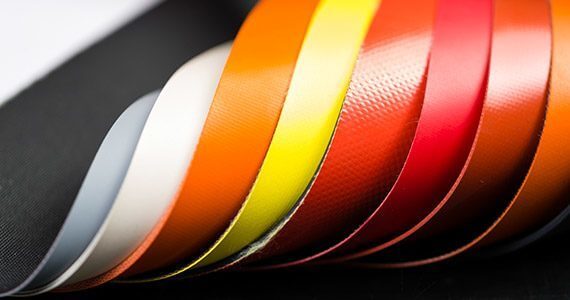
Creating an effective product hinges on understanding the environment in which it will be used. Various industries, such as aluminum production, oil and gas, and appliance manufacturing, rely heavily on maintaining equipment at optimal temperatures to enhance efficiency and reduce costs.
Thermal insulation materials play a critical role by reducing heat transfer during processing and protecting personnel during maintenance. The choice of insulation material can significantly impact how well a product or environment retains heat or minimizes heat waste. As experts in thermal insulation, Mid-Mountain Materials, Inc. offers a diverse range of thermal insulation materials tailored to different industrial needs. Before exploring our insulation products, it’s important to understand which thermal insulation materials are best suited for your specific environment. Here are five of the most commonly utilized thermal insulation materials.
These coatings enhance fabrics with increased thermal resistance, durability, and versatility. Coated fabrics are essential in applications like insulation jacketing and blankets, especially in industries that require robust thermal management solutions. Silicone-coated fabrics, for example, provide outstanding heat resistance and flexibility, making them ideal for high-temperature environments.
These materials are indispensable in applications requiring high-temperature resistance and dimensional stability. Fiberglass textiles are foundational to many insulation systems, with an operating temperature range of up to 538°C (1000°F). They are widely used in aerospace, automotive, and industrial manufacturing processes for effective heat management.
Silica Textiles Silica textiles provide superior thermal insulation at extremely high temperatures, up to 1000°C (1832°F). We offer woven fabrics, needled blankets, and sleeving designed to perform in harsh thermal environments. Their low thermal conductivity and high purity make silica textiles an excellent choice for critical heat-resistant applications, particularly in metal and glass manufacturing.
Coated Textiles with Silicone, Graphite, and Carbon Building on the versatility of coated fabrics, we also provide textiles coated with silicone, graphite, and carbon. These coatings enhance the thermal insulation properties, chemical resistance, and durability of the material under extreme conditions. Graphite and carbon coatings, in particular, offer exceptional heat dissipation, making them ideal for high-temperature applications in the energy, petrochemical, and environmental industries.
Ceramic-Coated Textiles Ceramic coatings applied to textiles significantly boost their thermal insulation capacity, enabling them to function in environments with temperatures exceeding 1260°C (2300°F). These materials exhibit remarkable thermal stability and resistance to thermal shock, making them ideal for applications such as:
The ceramic coating also enhances the material’s abrasion resistance, extending its lifespan in demanding industrial settings.
Have You Chosen Your Thermal Insulation Materials?
To minimize the impact of heat transfer on daily industrial operations, it’s crucial to incorporate thermal insulation materials. These materials help regulate equipment temperatures, allowing for standardized processes and reducing the total energy required to maintain specific temperatures—potentially lowering energy usage by 20-30%. Additionally, thermal insulation materials can provide fire resistance.
If you’re considering which thermal insulation materials are best for your project, we invite you to explore our range of products. With our extensive industry experience, our coated fabrics, textiles, and fabricated systems offer robust protection against heat and chemical interactions.